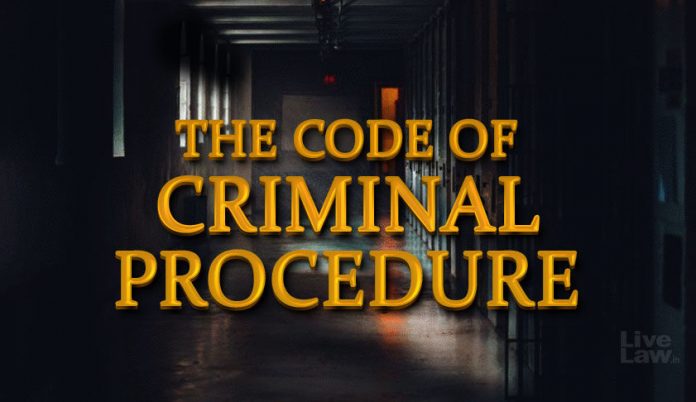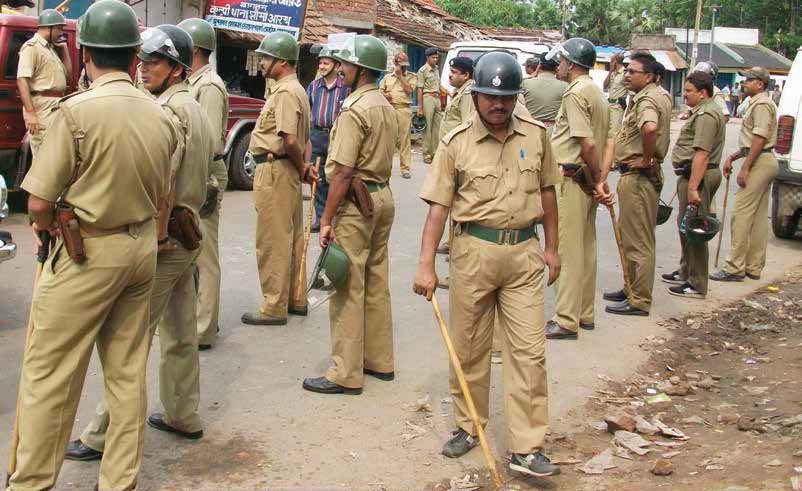The article is written by Tushar Singh Samota, a law student from University Five Year Law College, Rajasthan University. The article discusses the concept of criminal complaints to Magistrates, which is mentioned in Section 200 of the CrPC. The discussion will be supported by various judicial pronouncements.
This article has been published by Sneha Mahawar.
Table of Contents
Introduction
It is widely believed that people are frequently denied First Information Report (FIR) registration. The Indian legal system gives enough choices that one can use in such instances, but it is quite frequent for people to lack the necessary information to do so. If a person reports a crime and the police refuse to register the FIR for unjustified reasons, the individual may file a complaint with a higher-ranking official. If despite submitting a complaint to senior police officials, no FIR is lodged, the informant has the legal right to file a complaint with the Judicial Magistrate/ Metropolitan Magistrate under Section 156(3) of the Code of Criminal Procedure, 1973, requesting that the FIR be registered by the police and an investigation into the matter begin, and the Magistrate may take cognizance of the same under Section 190 of the Code.
In this article, the author will examine Section 200 of the CrPC, which will deal with further proceedings when the Magistrate will take cognizance of an offence on the complaint or the conditions under which a Magistrate will take account of the offence committed and its relevant components.
The significance of complaint proceedings made to Judicial Magistrates
Everyday court experiences indicate that many of the accusations are unfounded, and these complaints must be handled cautiously from the start. Furthermore, complaints that lack appropriate proof should be submitted for additional review so that only in true situations may the accused individual be summoned to court. It is critical to remember that an order calling a person to appear in a court of law for a criminal accusation carries significant implications and has the potential to deprive an accused person of his or her liberty, which is regarded as so valuable in our Republic.
Such an order should not be issued unless authorised by law. Section 200 to Section 203 have been adopted with this goal in mind, and their major purpose is to be able to discern real instances from fake ones and to root them out at the beginning without calling on the person against whom the complaint is filed. The Magistrate’s weeding-out operation under Sections 200 to 203 is wholly and only applicable to situations where cognizance is taken on a complaint. For obvious reasons, such a unique procedure or practice is not required when cognizance is based on a police report.
Judicial Magistrate’s complaint proceedings
When an effort is made to file a complaint under Section 154 or Section 155 of the Criminal Procedure Code (CrPC), the police may merely record an FIR if an offence of cognizable character is revealed. If the police decline to file an FIR, a complaint can be filed with the Superintendent of Police (SP) or Commissioner of Police (CP), who can then investigate themselves or instruct an officer subordinate to them to do so. However, if no inquiry is done by the SP/CP or requested to be conducted by a subordinate officer, the informant/complainant may approach a Judicial Magistrate of First Class (JMFC) who has authority over the police station where the first attempt to submit an FIR was made.
The abovementioned remedy is accessible to the informant under Section 156(3) of the CrPC. To avail of it, the informant/complainant must file an application/complaint with the JMFC court, detailing the relevant circumstances that constitute an offence of cognizable character. It is important to note that the application under Section 156(3) must also be accompanied by copies of the complaints made by the informant/complainant, first before the concerned police station and then before the SP/CP, to demonstrate that the informant/complainant exhausted their local remedies before approaching the court of law.
Following the facts and circumstances of each case, the Judicial Magistrate reviews the application or complaint after receiving one under Section 156(3) of the CrPC to determine whether the facts stated therein constitute an offence of a cognizable nature and whether the filing of an FIR is necessary. After reviewing the contents of the application/complaint, if the Magistrate believes that the facts mentioned in the application/complaint constitute a cognizable offence, he will direct the concerned police station to register an FIR, conduct an investigation, and submit a report as required by Section 173 of the CrPC.
Examination of the complainant before procedural issues
The examination of the complaint is the first step in strengthening the whole proceeding. Before initiating the procedure, the complaint must be thoroughly reviewed. Only after this examination Chapter XVI will come into action. This examination confirms the complainant’s locus standi. The Magistrate will also determine whether the complaint falls within the exclusions set out in Section 195 to Section 199.
When the prima facie case is established in the inquiry, the Magistrate may issue the process without further delay. This procedure of analysing the complaint must be carried out by the Magistrate himself, not by the advocate; nevertheless, the relevant counsel may assist in the process. Section 190 of the Code of Criminal Procedure establishes the requirement for Magistrates to take cognizance of offences. The Magistrate may take cognizance of this clause in the following circumstances:
- Following the receipt of a police complaint;
- Following receipt of charges of facts constituting an offence;
- Upon obtaining information from a source other than a police officer or upon his knowledge that such an offence has been committed;
- The Chief Judicial Magistrate may delegate authority to any Magistrate of the Second Class to take cognizance of offences for which he is competent to conduct an inquiry or a trial.
Before issuing a process, the Magistrate might analyse and thoroughly evaluate the complaint.
Examination of the complainant
The examination of the complainant is addressed under Section 200 of the Code of Criminal Procedure. After taking cognizance of an offence, the Magistrate must question the complainant and any witnesses present. This examination must be conducted under oath. The Magistrate is also required to record any pertinent information discovered during the examination. The substance of such an examination should be provided in writing and signed by the complainant and witnesses. The Magistrate is not required to perform this examination when:
- If the complaint is brought by a public servant acting or appearing to act in the performance of his official responsibilities or by a Court;
- If the Magistrate refers the case to another Magistrate for investigation or trial under Section 192.
If the Magistrate in charge examines the case and refers it to another Magistrate for investigation or trial, the later Magistrate does not need to review the cases again. Any Magistrate authorised under Section 190 may order such an investigation, according to Section 156(3) of the CrPC.
Section 156 in The Code Of Criminal Procedure, 1973
The authority of the police officer to look into a cognizable matter is discussed in Section 156. This Section states that:
- Any officer in charge of a police station may look into any cognizable matter that a court with jurisdiction over the local area within the borders of that station would have the authority to look into or trial under the requirements of Chapter XIII without the need for a Magistrate’s order.
- No police officer’s action in any such instance shall be brought into question at any time because the officer was not authorised to investigate the matter under this Section.
- Any Magistrate authorised by Section 190 may order the aforementioned investigation.
The procedure to be followed when a complaint is filed
Section 200 of the CrPC requires the Magistrate to hear a case and question the complainant and any witnesses present under oath for a sufficient amount of time to satisfy himself. The object of this is to determine if the accusations present a prima facie case for the Magistrate to issue process under Section 204 of the Criminal Procedure Code of 1973. If the witnesses are present on the date the complaint is filed, their statements should also be recorded under this provision.
The Magistrate has three alternatives after recording the complainant and witnesses’ testimonies and evidence under Section 200 CrPC, 1973.
- He may issue a process under Section 204 of the Criminal Procedure Code of 1973 if a prima facie crime is established and the potential accused resides within the Magistrate’s local jurisdiction.
- He may dismiss the complaint under Section 203 of the CrPC, 1973 if no prima facie crime is shown and no reasonable foundation for prosecution exists, or
- He may postpone the issuance of the process awaiting further inquiry by himself or investigation by police or any other person as he thinks appropriate under Section 202 of the Criminal Procedure Code of 1973.
As a result, Section 200 of the CrPC 1973 mandates that the complainant and any witnesses present be interrogated. This provision also makes it mandatory for the Magistrate to question the witnesses. In the matter of Rajesh Balchandra Chalke v. State of Maharashtra (2010), the Court concluded that Section 200 applies to the words ‘shall review’ and not ‘may review’. As a result, the method of the evaluation of the complaint on the declaration is mandatory rather than voluntary.
The procedure by a Magistrate who is ineligible to take cognizance of the case (Section 201)
If the complaint is filed with a Magistrate who is unable to take cognizance of the offence, then the Magistrate shall,
- If the complaint is submitted in writing, it can be returned to the complainant, and the party can be asked to present the complaint in the competent court.
- If the complaint is not submitted in writing, the Magistrate has the authority to refer the complainant to the appropriate Court.
In Ramadhar Singh R.D. Singh v. Smt. Ambika Sahu (2016), the court declared that, without getting into the merits of the case, what must be considered is the appeal and the need for the legislation under which the case has been registered under Section 201 CrPC.
Inquiry or investigation to look into the complainant further
Section 202 of the Code allows for further investigation of the complainant. If the Magistrate believes that additional inquiry is required, the procedure might be postponed. The Magistrate will assess whether there is a valid basis for proceeding. The scope of the investigation under this provision is limited to determining whether the complaint is true or untrue. In S.S. Binu v. State of West Bengal (2018), the court concluded that, in terms of the type of examination, the establishment of Section 202 Crpc has two goals:
- First is to empower the Magistrate to analyse exactly the claims stated in the accusation to avoid a person identified as accused from being summoned to confront an irrelevant, flimsy, or meritless complaint.
- Secondly, to determine if there is any material to defend the allegations stated in the complaint, or in other words the learned Magistrate engaged is under obligation to decide the commission of the offence after appropriate consideration.
Refusal/ dismissal of the complaint
Section 203 gives the Magistrate the authority to dismiss a case. If the Magistrate believes there are insufficient grounds for continuing, he may dismiss the case. After completing an adequate inquiry or investigation under Section 202, the Magistrate reaches this determination. The Magistrate may also reject the complaint if the processing fee is not properly paid, as specified in Section 204.
In the case of Chimanlal v. Datar Singh (1997), the court ruled that dismissing a complaint is improper if the Magistrate fails to interrogate a material witness under Section 202. The Magistrate has the authority to dismiss the complaint or refuse to issue the procedure when:
- The Magistrate determines that no offence was committed when the complaint is put to writing following Section 200;
- If the Magistrate doubts the complainant’s assertions;
- If the Magistrate believes that more inquiry is required, he may postpone the issuing of the process.
- The complainant is not permitted to submit any recall applications under Section 203 CrPC if the court has already issued the process.
The Supreme Court, in another case of Adalat Prasad v. Rooplal Jindal (2004), stated that if the Magistrate did not dismiss the charge and issued the process, the accused could not approach the court under Section 203 CrPC for dismissal of the complaint since the stage of Section 203 had already passed. Similarly, in Santokh Singh v. Geetanjali Woolen Pvt. Ltd. (1993), the Court ruled that just because a complaint has been dismissed by a Magistrate under Section 203, it does not preclude a second complaint based on the same facts and reasons from being heard. However, it should be considered only in exceptional instances.
Magistrate’s authority to reject a private complaint that indicates no offence
The Magistrate has the authority to consider a private complaint under the requirements of clause (a) of Section 190(1) of the CrPC. The complainant’s complaint must contain the facts that establish the offence. If these facts specified in the complaint turn out to be incorrect about the offence, the Magistrate is not compelled to consider such a complaint. He has the authority to dismiss such accusations without further investigation.
The Supreme Court ruled in Mehmood Ul Rehman v. Khazir Mohammad Tunda (2015) that:
The Magistrate has the advantage over the police report, which specifies the significant information linked to the complaints, according to Section 190(1)(b) of the CrPC. Further, Section 190(1)(c) of the CrPC stipulates that the Magistrate has the authority to consider information or knowledge of the commission of an offence acquired from sources other than the police report. However, under Section 190(1)(a), the Magistrate’s only option is to file a complaint. The steps taken by the Magistrate, as prescribed by Section 204, should demonstrate that he has considered the facts and statements and that there is a valid basis for further legal proceedings against such offence by interrogating the accused person against whom the accusations are made concerning the offence committed to appear before the court.
Furthermore, if the grounds for proceeding is met and the facts specified in the complaint constitute an offence, the accused person will be held accountable before the court. When the Magistrate dismisses the complaint, a spoken order must be issued under Section 203 of the CrPC, and the reasons must be explained concisely.
Thus, the above-mentioned Supreme Court decision resolves the issue by finding that a Magistrate may reject a private complaint where the facts provided in such a complaint do not explicitly show any violation without conducting any additional legal inquiry in such a situation.
Magistrate’s Power with respect to Sec 200 CrPC
Power of questioning the Complainant and the Witnesses
Section 200 requires the Magistrate to question both the complainant and the witnesses in attendance. Due to the importance of this requirement, the Magistrate must inquire whether or not a witness is present. The Magistrate shall also note the relevant fact in the order sheet if the witness is missing.
Investigation for further examination of the complaint
Any Magistrate who receives a complaint of an offence for which he is authorised to act or who has been directed under Section 192 of the CrPC may believe that it is appropriate to postpone the issue of proceedings against the accused person, he may either inquire into the case himself or direct an investigation to be conducted by a police officer or any other person he believes is appropriate for determining whether or not there is sufficient evidence for the proceeding.
Power to reject the complaint
Section 203 empowers the Magistrate to reject the complaint made by the complainant in every situation, and he must briefly record his reasons for doing so. This will aid in deciding whether the Magistrate applied his mind to the facts available or used his discretion appropriately or not.
Can an inquiry be conducted under Section 156(3) even if a complaint is filed under Section 200 CrPC
Even though the complaint was submitted under Section 200 as a ‘private complaint’, the Magistrate has full authority to instruct the Police to conduct an inquiry.
In the case of Madhao v. State of Maharashtra (2013), the following things were ruled out:
- It is not the Magistrate’s main obligation to take prompt notice of a complaint submitted under Section 200 only because it is a ‘private complaint’. The Magistrates have the authority to decide whether or not to take cognizance. As Section 200 is a pre-cognizance stage, the Magistrate has the discretion to order an investigation by the Magistrate himself or the police. The Magistrate shall take cognizance based on merits and facts following such inquiry or investigation.
- In this circumstance, the Magistrate is authorised to seek an alternative remedy or line of action before taking cognizance.
- Investigation under Section 156(3) should be conducive to justice and shall also spare the court’s time from asking into an issue that the police officers should have primarily probed.
Related judicial pronouncements
Chandra Deo Singh v. Prokash Chandra Bose and anr., 1963
The Hon’ble Judge in the case of Chandra Deo Singh v. Prokash Chandra Bose and Anr. (1963) believed that because there is only one offence, namely the murder of Nageswar Singh, there can be only one trial and no further inquiry can be made into the other persons who are being tried for that offence. There were no significant facts on record to explain to the court what happened to the investigation against Asim Mondal and Arun Mondal after the High Court dismissed their move for revision.
The ruling reveals that the commitment procedures against these two individuals will be delayed pending, which resulted in the dismissal of the current appeal by this court. The Court stated that it does not understand the notion that an investigation into a different individual for the same offence cannot be conducted. Section 203 of the Code of Criminal Procedure states that if a Magistrate rejects a complaint because there is no adequate foundation for proceeding with the trial, he must record his reasons for doing so. As previously noted, the Magistrate pursued the inquiring Magistrate’s report and dismissed the allegation. This viewpoint is supported by the court’s reliance on its ruling.
In this decision, the Supreme Court overturned the Magistrate’s dismissal of a complaint at the stage of inquiry under Section 203 by stating that the question was whether there was adequate cause for the procedure rather than whether there was sufficient ground for conviction. The Court further observed that if there is direct evidence, even if the accused has a safeguard that the offence was committed by someone else, the subject must be determined by the right forum at the appropriate moment. The issue of the process cannot be rejected. Unless the Magistrate decides that the evidence put before him is self-contradictory or otherwise untrustworthy, the procedure cannot be denied if it establishes a direct cause.
Gurudas Balkrishna v. Chief Judicial Magistrate Goa, 1992
A complaint was submitted in the case of Gurudas Balkrishna v. Chief Judicial Magistrate Goa (1992) before the learned Magistrate on July 31, 1992, but it was not put on record until August 3, 1992, and nothing transpired until September 25, 1992. According to the Roznamcha, on September 25, certain other issues needed to be dealt with on a priority basis before the Magistrate. Hence, the case was delayed until February 19, 1993.
The Hon’ble High Court then stated that engaging the Court in any other task for a day cannot be justified since it is likely to thwart the exact objective for which the criminal charges are being filed. As a consequence, the High Court granted the plea, and the Hon’ble Court asked the Chief Judicial Magistrate, Panaji, to record the testimony of the complainant and his witnesses within a week of its ruling.
Jacob Harold Aranha v. Vera Aranha (1979)
In the well-known case of Jacob Harold Aranha v. Vera Aranha (1979), the Bombay High Court took a hard stance on Section 204 of the Code of 1973. The Court remarked that a Magistrate has a legal responsibility to conduct a careful study of the charges and evidence presented to the court in order to determine whether or not a prima facie case exists. This must be completed prior to the issuance of a summons under Section 204 of the Code of Criminal Procedure. The decision was accepted as a precedent in the case of Roshan Lal v. P. Hemchandran (1995), in which the Rajasthan High Court held that, while issuing summons to the accused is a subjective satisfaction of the Magistrate, it must be done judiciously, in accordance with the law, and on the basis of sound reasoning.
Anam Charan Behera v. State (2001)
In the case of Anam Charan Behera v. State (2001), the Orissa High Court discussed the power granted to Magistrates under Section 205 of the Code of Criminal Procedure, 1973. The Hon’ble High Court assured that Section 205 does not lay down any hard and fast rules that Magistrates must follow when exercising the conferred power, stating that the power is discretionary in nature. The court must exercise this discretionary power after due consideration of relevant circumstances such as the significant inconvenience that can be caused to the accused, his or her profession, and so on. The Magistrate dismissed the petition in the current case, which had been ongoing for over 16 years owing to the absence of the accused, which could not be confirmed despite multiple warrants given to him. It was determined that the Magistrate’s discretion in denying the petition in this matter under Section 205 of the Code was not abused.
Conclusion
We can conclude that when a written complaint is submitted to the court, the Magistrate registers it after reviewing it. Following registration, the complainant’s statement is recorded under Section 200 of the Criminal Procedure Code, 1973, on the same day. The case is set for recording the evidence of witnesses under Section 202 of the Code of Criminal Procedure on any other day. After recording the testimony of the witness or witnesses under Section 202 CrPC, the matter is set for arguments on summons. After hearing the arguments during the hearing, the matter has been scheduled for the next summons. If the Magistrate determines or believes that evidence relevant to the offence is contained in the complaint following Sections 200 and 202 of the Code of Criminal Procedure, then the Magistrate issues the process against the accused under Section 204 of the CrPC.
If, on the other hand, the Magistrate is satisfied after reviewing evidence under Sections 200 and 202 CrPC that no prima facie offence has been shown and that there is no adequate reason for proceeding, then he dismisses the complaint under Section 203 CrPC.
Frequently asked questions (FAQ)
What is the difference between Section 156(3) and Section 200 of CrPC?
Section 156(3) of CrPC indicates the regulations governing a police officer’s ability to investigate a cognizable offence upon receiving orders for the same from the Magistrate under Section 190 of CrPC whereas Section 200 deals with the concept of criminal complaints to the Magistrate.
What is the difference between Section 190 and 200 CrPC?
The major difference with reference to the private complaints is that the competence to take cognizance is found in Section 190 of the CrPC, whereas Section 200 of the CrPC grants the authorities the right to interrogate the complainant under oath for the purpose of verifying the allegation.
Is there a fee or payment to be paid to the police for the registration of an FIR?
Certainly not. The police are not to be paid for registering the FIR and conducting the following investigation. If someone at the police station makes such a demand, a report should be filed immediately with the senior offices.
What happens when a police station receives a report about a non-cognizable offence?
The police station is obligated to record an abstract of such a complaint in the general diary, which is referred to as N.C. and suggest the complainant register the complaint with the appropriate court, as the police are not authorised to take action in such cases without court approval. The complaint may be given a free copy of the record made in the General Diary.
References
- https://devgan.in/crpc/section/200/
- https://www.livelaw.in/news-updates/karnataka-high-court-taking-cognizance-of-private-complaint-sets-out-procedure-for-Magistrates-183802
- https://www.latestlaws.com/bare-acts/central-acts-rules/crpc-section-200-examination-of-complainant
- https://www.scconline.com/blog/post/tag/section-200-crpc/
Students of Lawsikho courses regularly produce writing assignments and work on practical exercises as a part of their coursework and develop themselves in real-life practical skills.
LawSikho has created a telegram group for exchanging legal knowledge, referrals, and various opportunities. You can click on this link and join:
Follow us on Instagram and subscribe to our YouTube channel for more amazing legal content.
 Serato DJ Crack 2025Serato DJ PRO Crack
Serato DJ Crack 2025Serato DJ PRO Crack













 Allow notifications
Allow notifications


